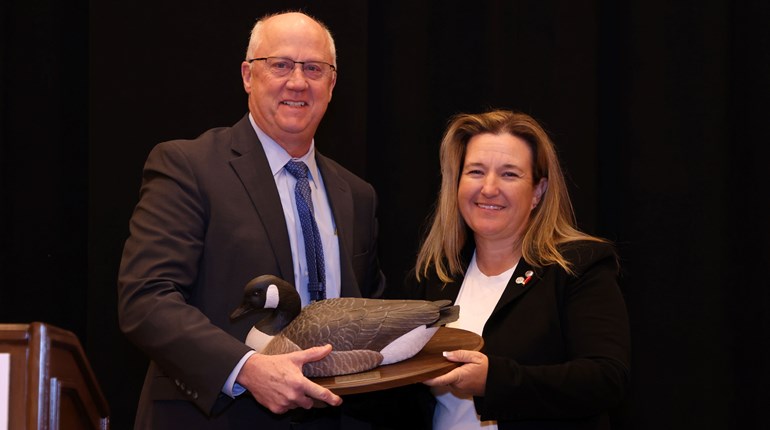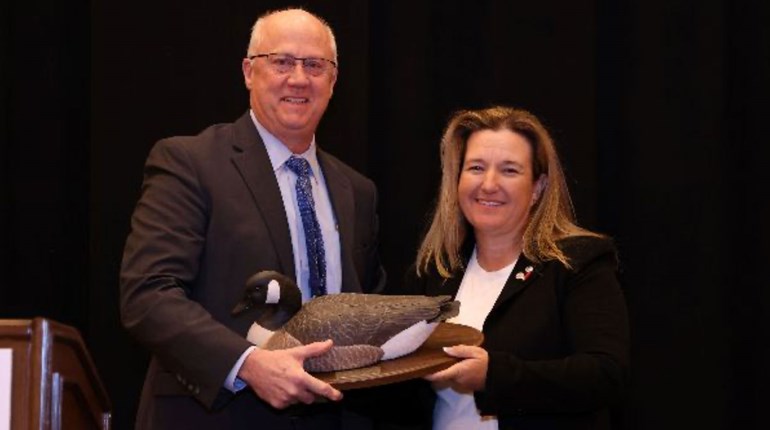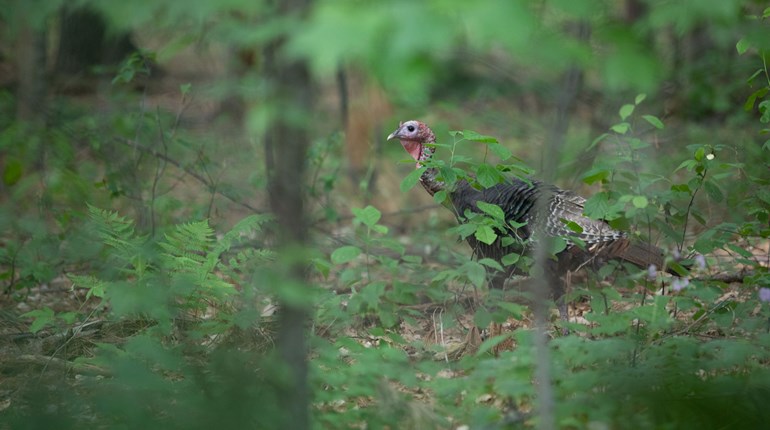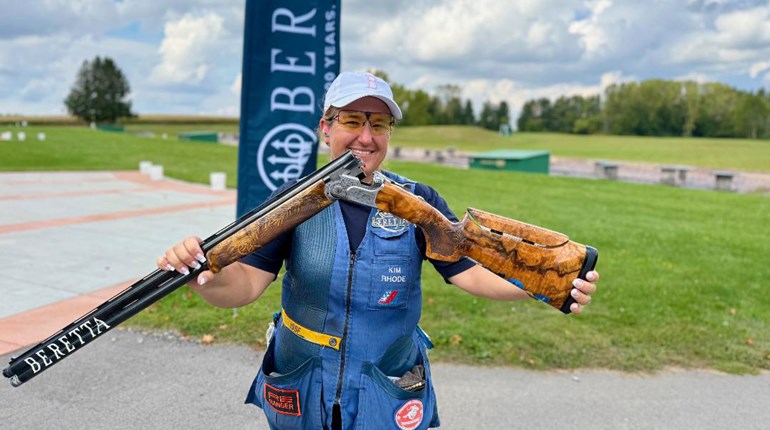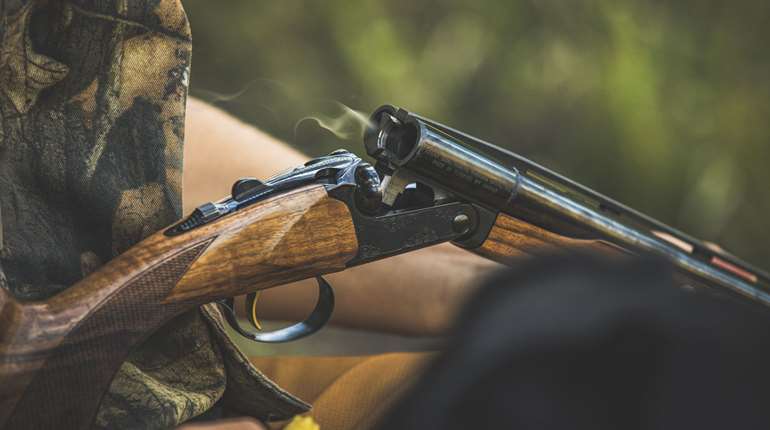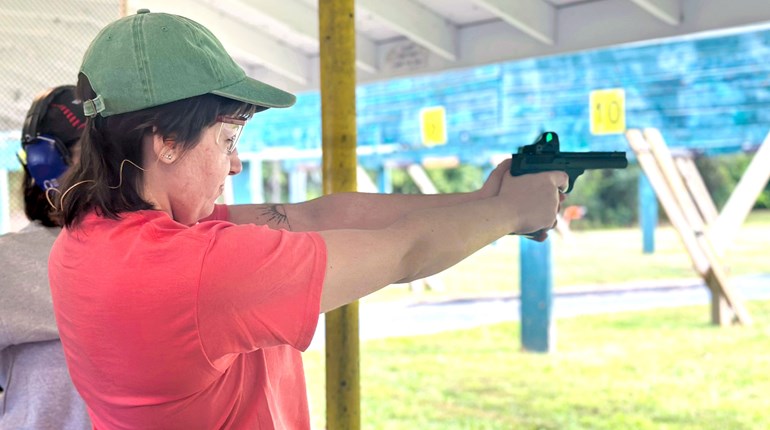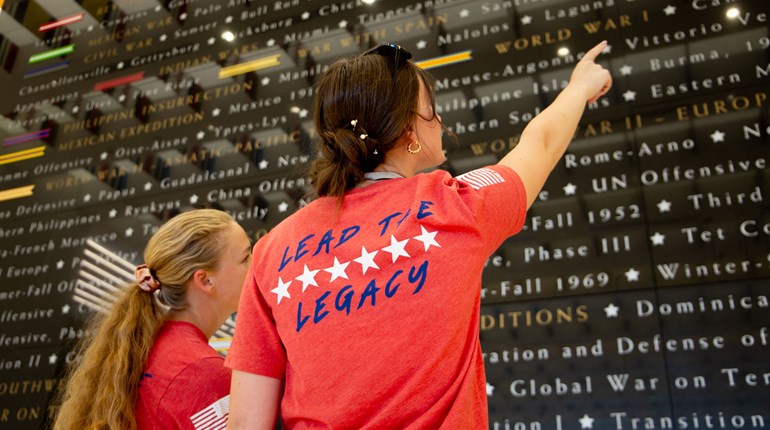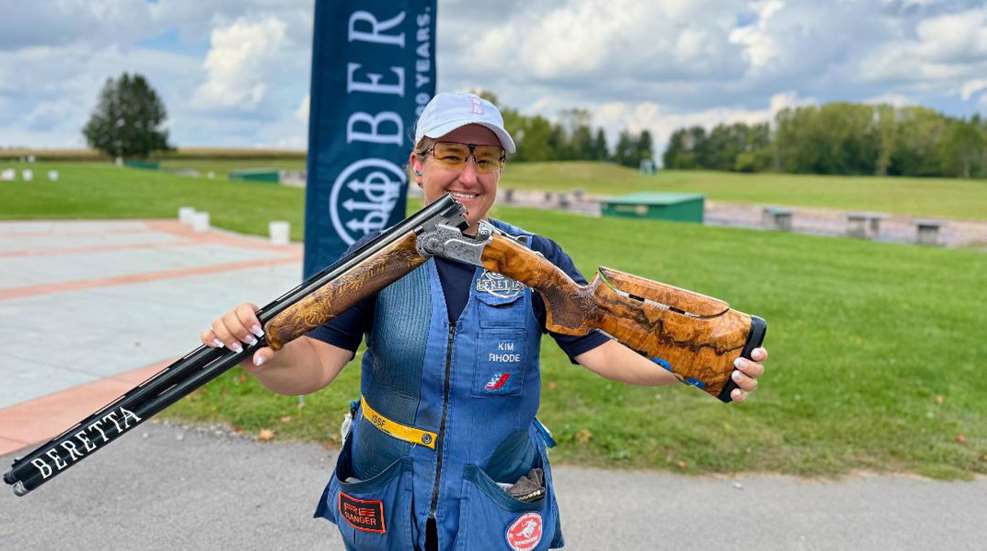
Six-time Olympic medalist Kim Rhode is living proof that determination and preparation can take you anywhere—even to the podium at the world’s biggest stage. Known for her remarkable achievements in skeet and double trap, Kim has carved a place for herself in a sport where it was once a rarity for women. But her story is not only about winning medals. It is about resilience, community and the belief that every woman has the power to pursue her dreams and what she loves, even when the odds seem stacked against her.
 Kim was a featured special guest at the Beretta Shotgun Experience, sponsored by Beretta and hosted by Sisterhood Outdoors at the Mayville Gun Club in Wisconsin. I was fortunate to be able attend this event and reconnect with Kim, having several opportunities for conversations with her throughout the event. She shared a bit about her childhood and upbringing, how she was introduced to shotgunning, and what it takes to be a champion.
Kim was a featured special guest at the Beretta Shotgun Experience, sponsored by Beretta and hosted by Sisterhood Outdoors at the Mayville Gun Club in Wisconsin. I was fortunate to be able attend this event and reconnect with Kim, having several opportunities for conversations with her throughout the event. She shared a bit about her childhood and upbringing, how she was introduced to shotgunning, and what it takes to be a champion.
Shooting was passed down in her family from generation to generation and was always “just a way of life.” When she was 10 years old, she competed in a junior NRA program for .22s at her local club. She did very well and won at the club events. The club next started a shotgun program, and Kim was introduced to the excitement of breaking moving targets. She was hooked and so began her shotgun shooting career.
Kim has an infectious smile, an inviting personality, and an eagerness to share her passion and dedication to introducing more women and youth to the shooting sports. Even after a brief conversation with her, it does not take long to realize her success isn’t all about strength or talent—it’s about preparation, resilience and courage. She trains daily and relentlessly, firing round after round until precision becomes second nature. When she is asked about her discipline, how she prepares for competitions, how she handles stress, and ultimately what it is like performing in the Olympics, she eagerly shares a few words of advice and encouragement.
Do Not Let It Go
At her first Olympic Games in Atlanta in 1996, she was only 16. She turned 17 just five days before competing in double trap. She was the youngest person in U.S. history to compete in Olympic shooting. On the day of her event, she found herself slipping from first place to last place after just one rotation. She remembers how she felt at that moment and fighting off the urge to let the current score and ranking crush her spirit. Instead, she immediately shifted her mindset and refused to let doubt and frustration take over. She recalls saying to herself, “I’m not going to let it go this easy.” She immediately changed her mindset and got back into the game. She came back stronger and ultimately won it all—the gold!
Her experience is a powerful reminder that failure is not the end of a story, but frequently the beginning of a breakthrough. She is proof to trust in your training, skills, confidence, and your voice especially in times when it is easier to step back or allow yourself to give up. Whether it’s your right to bear arms, your place on the range, or your belief in self-reliance, do not let anyone make you feel like you don’t belong. The knowledge you’ve gained, the hours you’ve trained, and the strength you’ve built are all worth the fight to not give up or let it all go. It is important to stay sharp, stay engaged and remember: your presence matters. Your persistence sets an example for every woman and young shooter coming up behind you and following your lead.
Learn Your Body: Master the Mechanics
Shooting between 500 and 1,000 rounds per day, seven days per week, Kim says, “At that level you learn quickly what is comfortable and what hurts!” She learned at a young age to listen to the coaching by her father to help fix a mistake or adjust an incorrect body position right away, to prevent a bad habit from setting in. For example, when I had the privilege to shoot a few rounds under her observation, she saw that I was leaning a bit too far forward and over my front leg. She asked me if I was uncomfortable when shooting and I told her no. She explained although the shooting position I was currently in didn’t hurt me now, or even after a round or two of trap, skeet or sporting clays, but if I increased my shooting and spent more hours on the range each day, the position I was in would eventually begin to hurt because it wasn’t a “natural position.” She simply told me to “Stand up.” To my amazement, that slight correction improved my entire shotgun game to what felt like, to me, 100 percentt! I immediately began dusting every clay bird that was launched in front of me after listening to Kim’s advice and learning more about body position and how that directly related to the mechanics of shooting.

Through her intense daily routine and discipline, from a very young age, she quickly discovered the importance of body awareness. She advises, “Fix it early to prevent a bad habit from setting in.” Even small errors like leaning too far forward can derail performance if left unchecked.
Therein lies power of self-awareness in shooting. Everyone’s body is different: how you stand, how you mount and shoulder your shotgun, and how you manage recoil. Success comes when you take the time to understand your own unique strengths, limitations and habits. Correcting a problem before it becomes a bad habit is critical for success. Many times, it takes a reputable and qualified shooting coach with a trained eye in the discipline you are in, to help identify those issues, bring them to your attention, and provide the correct feedback for improvement.
Learning your body is vital for consistent movement, muscle memory, and knowing how your body responds under pressure. When you tune in, adjust and refine, you gain control: not just control over the firearm but over your confidence and performance when and where it matters the most.

Say Yes and Show Up
I asked Kim to share her advice about getting more people involved in the shooting sports. Her reply was, “Get out and do it!” She encourages everyone to go shoot shotguns with friends and family. Shooting can be lifelong with no age limit when to start. Kim talks a lot about “sisterhood” and how her involvement in her community through the shooting sports has shaped who she is today. She recalls all the good times and memories she’d shared with her family and friends while shooting for fun, competition, or while hunting. This is an activity you can do with anyone, anywhere in the world and shooting has certainly taken her around the world.
Even if you have a bad day, you still show up. Change your focus and be honest with yourself. Change your mindset and face those problems, obstacles or whatever it is giving you that “bad day” and overcome it. It’s your mindset that separates those who dream and those who reach their goal. Whether it’s stepping onto the range for the first time or being an established competitive shooter, say yes and show up. Have the courage to start and then keep showing up. The secret to success in this sport is putting yourself out there and never giving up.
Just Accept It
How does a six-time Olympic medalist overcome nerves and pressure, and eliminate her fears? Kim says, “Just accept it.” It’s how you prepare for the moment that helps you handle it. When you’re not prepared you have doubts, which lead to fears. The best way to remove fears is to face them. Accept them. Be honest with yourself to overcome pressure, which is the fear of not performing.
Face your fears, practice with intention, and you’ll discover strength you didn’t know you had. Being nervous, stressed, and feeling the pressure are a natural part of competitive shooting. Instead of resisting those feelings, face and acknowledge them. The best shooters in the world still feel the pressure. The difference is they have learned how to work with those feelings, not against them.
In her confident voice through her beaming smile, Kim says, “Don’t get frustrated or discouraged. Your goal is to stay strong, keep going and win the competition. It’s never over until it’s over. And don’t miss when it counts the most—that’s what makes a champion!”
Kim is currently training for the 2028 Los Angeles Olympics. She had a grin from ear to ear when she said, “Not a lot of people have gone to seven Olympics and have a chance at winning seven medals; it will be a huge honor!”












